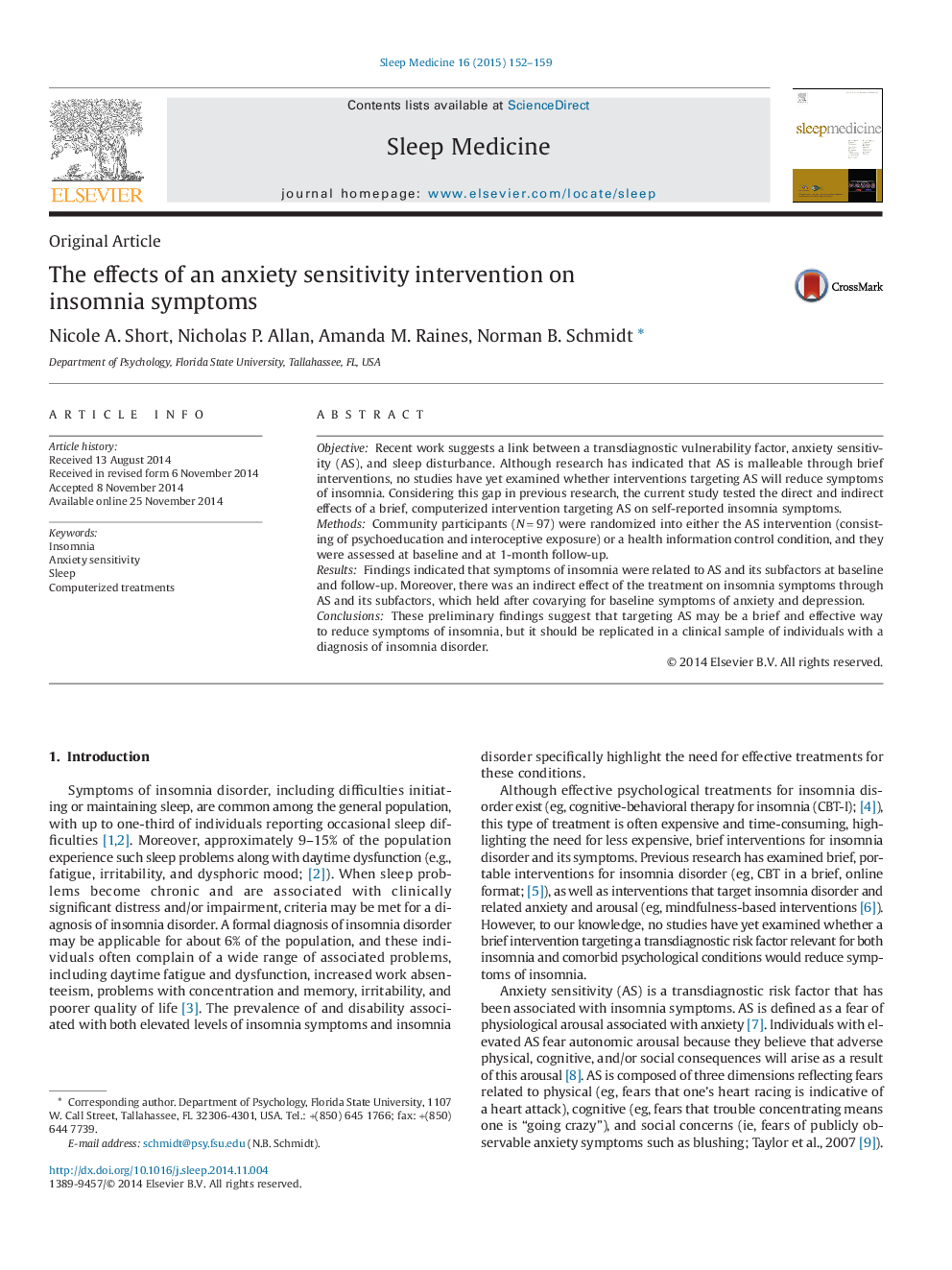| Article ID | Journal | Published Year | Pages | File Type |
|---|---|---|---|---|
| 6060794 | Sleep Medicine | 2015 | 8 Pages |
â¢We investigated the effects of an anxiety sensitivity (AS) intervention on insomnia.â¢The AS intervention reduced symptoms of insomnia through AS and its subscales.â¢The indirect effects held when covarying for depression and anxiety symptoms.
ObjectiveRecent work suggests a link between a transdiagnostic vulnerability factor, anxiety sensitivity (AS), and sleep disturbance. Although research has indicated that AS is malleable through brief interventions, no studies have yet examined whether interventions targeting AS will reduce symptoms of insomnia. Considering this gap in previous research, the current study tested the direct and indirect effects of a brief, computerized intervention targeting AS on self-reported insomnia symptoms.MethodsCommunity participants (Nâ=â97) were randomized into either the AS intervention (consisting of psychoeducation and interoceptive exposure) or a health information control condition, and they were assessed at baseline and at 1-month follow-up.ResultsFindings indicated that symptoms of insomnia were related to AS and its subfactors at baseline and follow-up. Moreover, there was an indirect effect of the treatment on insomnia symptoms through AS and its subfactors, which held after covarying for baseline symptoms of anxiety and depression.ConclusionsThese preliminary findings suggest that targeting AS may be a brief and effective way to reduce symptoms of insomnia, but it should be replicated in a clinical sample of individuals with a diagnosis of insomnia disorder.
